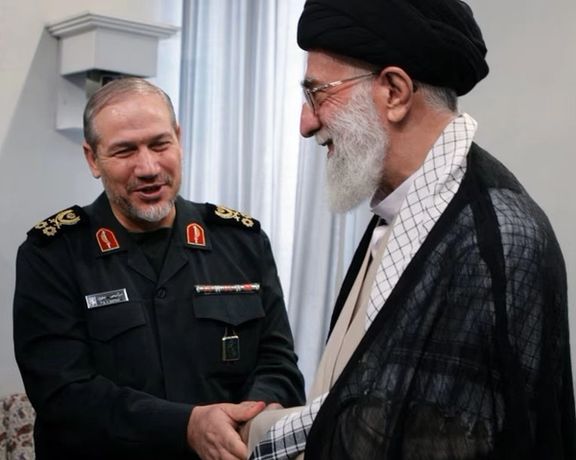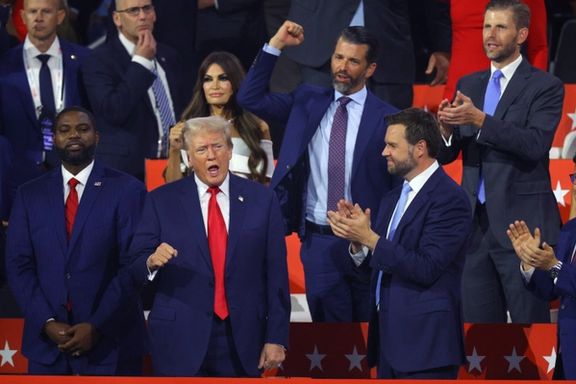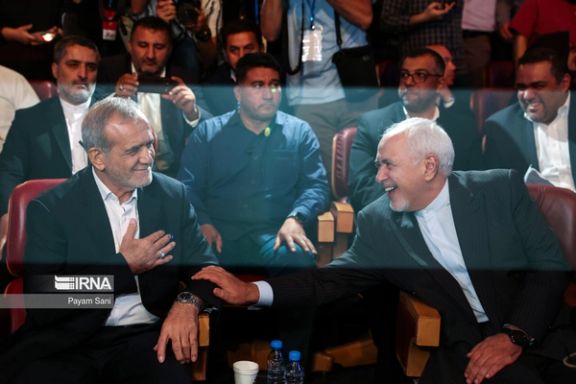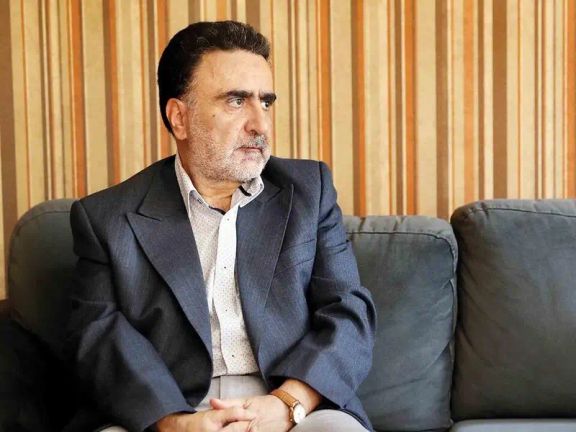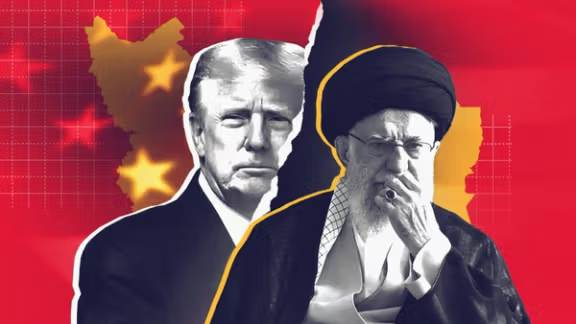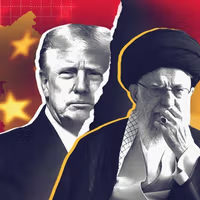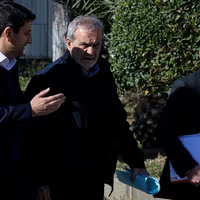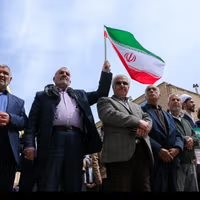One after another, Republican members of Congress and several former officials and diplomats took aim at the Biden administration’s approach to China, Russia, and Iran, arguing that the Democrats’ policies since 2021 have made the US unsafe and weakened its position on the global stage.
Walking out to long applause, Newt Gingrich, the high-profile former Speaker of the House, lent his support, speaking of Trump’s understanding of global dangers and anti-US forces. He emphasized the need for "peace through strength," and contrasted what he says are Trump's realistic policies as opposed to Biden's weaknesses and appeasement.
Gingrich specifically warned about Iran, describing it as a religious dictatorship chanting "death to America" and nearing nuclear capability. He argued that Biden's policies have failed to address this and other threats, whereas he deemed Trump's firm approach necessary to ensure strength and peace in a “dangerous world.”
Former White House official and 2016 Trump campaign manager Kellyanne Conway also spoke in Milwaukee touting Trump's achievements such as taking out ISIS leaders al-Baghdadi and the Iranian Islamic Revolutionary Guards’ notorious military commander Qassem Soleimani and ending the ISIS caliphate.
Conway argued that "weakness emboldens adversaries," underscoring the importance of Trump's strong stance on national security and foreign policy. Addressing those who claim they want Trump's policies without his personality, Conway remarked, "Good luck with that. We don’t get those policies without that personality."
On the point of appeasing Iran, the Biden administration has often countered the accusations by listing what it calls robust sanctions against hundreds of Iranian entities and individuals aimed at curbing Iran’s military capabilities and support for terrorism.
J.D. Vance took to the stage, and officially accepted the nomination as Trump’s VP, with his speech primarily focused on his challenging upbringing in Ohio, his military service, and the economy. Vance criticized Biden’s policies, arguing they lead to the US being flooded with “cheap Chinese goods.”
Vance also highlighted what he saw as a failure of President Biden, from open borders to stagnating wages, and insisted allies must share the burden of securing world peace. Trump’s running-mate concluded, "Together, we will send our kids to war only when we must. But as President Trump showed with the elimination of ISIS and so much more, when we punch, we're going to punch hard."
Former Acting Director of National Intelligence Richard Grenell’s speech criticized what he called “years of neglecting US priorities”.
"We spent too many years ignoring US priorities, when Washington stopped being the capital of the US and started being the capital of the world." He highlighted that under Trump, historic peace deals were signed in the Middle East, namely the Abraham Accords, and that Iran was economically weakened, and China was challenged.
Grenell also noted there were no new wars and old wars ended. In contrast, under Biden, Russia invaded Ukraine, the Taliban regained power, ISIS members slipped through the southern border, China bullied its neighbors, and Iran waged war in Israel and Gaza with Biden’s help.
Democrats however, have often argued that Trump’s “maximum pressure” policy on Tehran during his time as President backfired by pushing Iran to ramp up its nuclear program and increasing regional instability. Rather than bringing Iran back to the negotiating table, after Trump exited the Iran nuclear deal, they claim the approach led to heightened tensions and more frequent attacks on US troops by Iranian-backed groups in the Middle East.
Additionally, $16 billion in frozen funds were released to Iran under the Biden administration for reported humanitarian purposes like food and medicine, as critics argue that this indirectly supports Iran's military and proxy activities by freeing up other resources.
Yet, Republicans say that the Biden administration’s inadequate enforcement of sanctions has pushed Iran's oil sales to soar significantly. Since Biden took office, Iran's oil exports have risen from around 300,000 barrels per day to 1.5 million barrels per day, primarily due to increased sales to China. This increase in oil sales has generated approximately $80 billion for Iran, providing substantial financial resources to support its military and proxy groups across the Middle East, including Hamas and Hezbollah.
Another member of Congress, Nancy Mace, from South Carolina warned that China, which is watching America closely, supports enemy states like Iran which oppresses its own people -- in particular its women.
Michael Waltz, the Congressman from Florida, praised Trump's tenure, stating, "Under Trump, we had a president who defeated ISIS, broke Iran, stood with Israel, always stood with our allies, made China pay… you didn’t see any spy balloons under President Trump, did you? He deterred Russia."
Waltz further criticized the current administration’s focus on other issues, saying, "What do we have today… he's focused on pronouns and renaming bases."
Dr. Ronny Jackson, a congressman from Texas, Navy veteran, and former combat physician in Iraq, also spoke. As Donald Trump’s physician, Jackson criticized President Biden’s leadership, stating, "China, Russia, North Korea, and Iran do not respect Joe Biden’s 10am - 4pm schedule."
He argued, "There is simply too much at stake for someone who can barely shuffle to the podium. For the security of the country, every second Biden stays in the White House, the country becomes less safe." Jackson asserted that under Trump, America will restore its standing on the world stage.
Several military veterans also sharply criticized Biden’s withdrawal from Afghanistan, with one veteran calling it a "moral injury" and describing it as a "dark chapter" in American history. They emphasized the chaos and harm caused by the withdrawal, highlighting its negative impact on both the military and the nation’s global standing.
